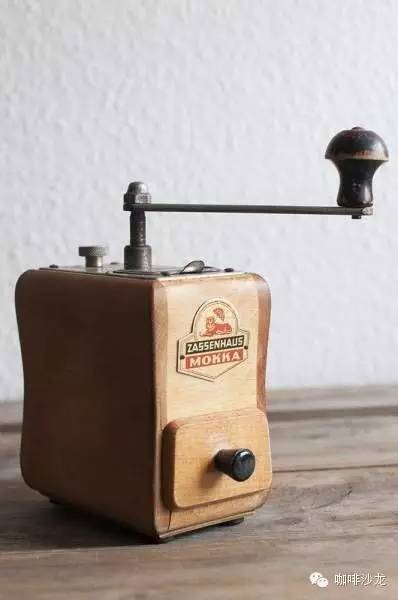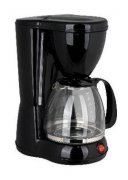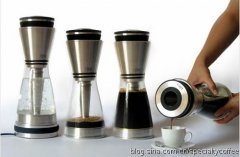Go to Japan for coffee Japanese coffee culture

All over the world, it is probably only in Japan that you can easily drink a cup of authentic Blue Mountain coffee. The reason is simple, because more than 90% of the world's Blue Mountain coffee is exported to Japan.
The Japanese love of coffee is not born this way. At first, like all East Asians, they were not used to the taste of coffee. The Japanese who live in peace learn from the Chinese and drink a lot of light and meaningful green tea. In order to make the soup of green tea more transparent and green, they put in some fried rice grains, so the tea becomes more mellow and softer, and the aroma of rice is released between lips and teeth. Then the coffee came. The first Dutch priest who landed in Nagasaki took out a can of coffee from his suitcase to entertain the locals. The first person to try spit out the liquid in his mouth impolitely. "it's like cough potion." This is probably a metaphor that everyone will use.
Today, Japan has become the world's third largest importer of coffee after the United States and Germany. Starbucks was full early in the morning, men and women, young and old, lined up, and when it was their turn, he hurriedly said, "one cappuccino, two doughnuts." Eat and go, or walk directly in a bag, because you have to go to work in a hurry. This is the situation where big cakes Youtiao and tofu pudding are sold in the breakfast shop in Beijing. In this large chain of coffee shops, you can't drink good coffee or even smell the aroma of coffee, but you can smell the sweet and sour sugar boiling in the water. If you want to drink pure good coffee, you must go deep into the streets as narrow as canyons, where there are many small shops of crouching tigers, hidden dragons. After entering the door, don't rush to order coffee, but observe. Good shopkeepers are addicted to details, make a cup of coffee, but Madame Curie refines radium, interested, and even use the balance to weigh coffee beans. These small shops rarely use cheap propeller grinders because they cut rather than grind coffee beans, and the heat generated by the propeller blades lacks an effective way to dissipate heat, which heats the coffee beans and releases aroma in advance. Moreover, the coffee particles treated by the propeller grinder are uneven in thickness, dark on the surface, and even lumpy.
Small coffee shops in Japan like to use roller-type electric grinders or even hand-held grinders to shake, stop and carefully examine the condition of coffee beans. When you encounter such a shopkeeper, you can safely unpack your backpack, adjust your body to the most comfortable position, and then open the menu and deliberate it leisurely.
"charcoal coffee" I do know that the Japanese have improved the traditional European coffee roasting method. Coffee beans are roasted with charcoal fire and have a darker color. The coffee is bitterer than ordinary coffee, but it has no astringent or sour taste. This is the first time I have seen "Sleeping Water Coffee". Its caffeine content is very low, but it retains the rich aroma of coffee and contributes to sleep, while "Eye Coffee" is just the opposite. It is highly refreshing and is a favorite of young white-collar workers. In addition, there is a "shade-dried coffee" specially designed for women, which is said to be a newly harvested Brazilian coffee bean, which is placed in a cool place to dry for two months while the germ is still green, so that the sugar in the pulp completely seeps into the coffee beans during the drying process, making the taste more gentle and soft, but the aroma is long-lasting and strong. In addition, there are many original royal jelly coffee, ice cream coffee, sundae coffee, matcha coffee, black tea coffee, pineapple coffee, lace coffee. Even a cup of cappuccino looks different. A thick layer of cinnamon powder is sprinkled on the expanded whipped cream. You have to dig deep into the spoon to find the coffee underneath, and sometimes you send a small stick of laurel instead of a spoon. It makes people feel that they are being specially considerate and taken care of. When I drink this kind of coffee during a trip, I can't help thinking, what else did I miss?
These refurbished coffees may infuriate the owners of established coffee shops in Europe, who think they know the most about coffee in the world. When the Japanese add 2/3 milk to their coffee, chill it in the refrigerator, and name it iced coffee, and it is very popular in cafes across Japan, Europeans sneer with anger-you know, drinking while it is hot is almost the legal virtue of tasting coffee in Europe, and the sauna, which can gurgle and sweat even when sitting still, has to be finished before the hot air dissipates. It is OK for the Japanese to worship coffee and love coffee, but they have turned the coffee into their own things, which makes Europeans a little unbearable. Hundreds of years ago, the Dutch priest who landed in Nagasaki probably did not expect that the respectful and defensive Japanese would do such a disobedient thing.
Source: network
Important Notice :
前街咖啡 FrontStreet Coffee has moved to new addredd:
FrontStreet Coffee Address: 315,Donghua East Road,GuangZhou
Tel:020 38364473
- Prev

How to use the household coffee machine how to clean and drink coffee at home to maintain the coffee machine
The rich variety of small household appliances has brought a lot of convenience to people's life. At the same time, it can improve the taste of life, maybe a small item can make the whole kitchen fashionable and avantgarde, such as a practical and beautiful soya-bean milk machine in the kitchen, making it easier to make, and if there is one more coffee machine in the kitchen, then the feeling of European style will arise spontaneously, and you will use it.
- Next

Simply drink a cup of coffee, delicious coffee.
When I was a child, I often looked at the cup of thick black coffee in the hands of adults. It smelled good, but it was miserable after a few mouthfuls. Adults would always tell me that I had to eat bitterness in order to be a human being. So the bitterness of coffee spread in everyone's mind and left an everlasting memory in everyone's mind. I always felt that coffee could only be drunk with bitter fragrance, fragrant cream and sugar.
Related
- Beginners will see the "Coffee pull flower" guide!
- What is the difference between ice blog purified milk and ordinary milk coffee?
- Why is the Philippines the largest producer of crops in Liberia?
- For coffee extraction, should the fine powder be retained?
- How does extracted espresso fill pressed powder? How much strength does it take to press the powder?
- How to make jasmine cold extract coffee? Is the jasmine + latte good?
- Will this little toy really make the coffee taste better? How does Lily Drip affect coffee extraction?
- Will the action of slapping the filter cup also affect coffee extraction?
- What's the difference between powder-to-water ratio and powder-to-liquid ratio?
- What is the Ethiopian local species? What does it have to do with Heirloom native species?

